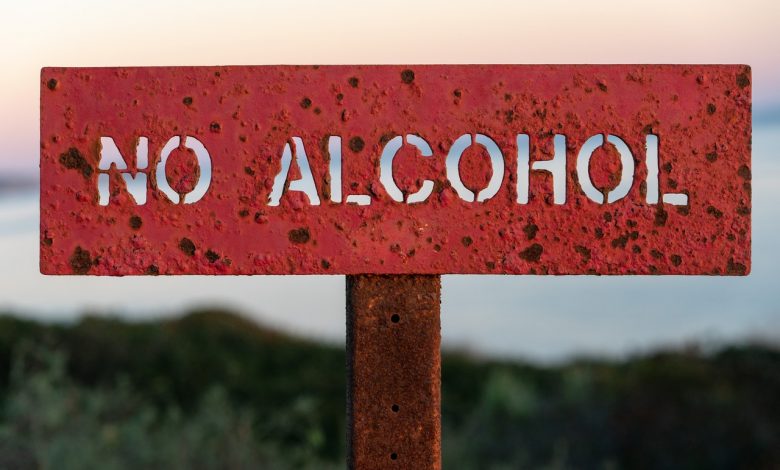How Effective is Ativan For Alcohol Withdrawal?

If you drink alcohol heavily for weeks, months, or years, you may have both mental and physical problems when you stop or seriously cut back on how much you drink. This is called alcohol withdrawal. Alcohol withdrawal syndrome (AWS) is the name for the symptoms that occur when a heavy drinker suddenly stops or significantly reduces their alcohol intake. Symptoms can range from mild to serious.
If you drink only once in a while, it’s unlikely that you’ll have withdrawal symptoms when you stop. But if you’ve gone through alcohol withdrawal once, you’re more likely to go through it again the next time you call it quits. The signs and symptoms of alcohol withdrawal may appear anywhere from 6 hours to a few days after your last drink. These usually include at least two of the following:
• tremors
• anxiety
• nausea
• vomiting
• headache
• an increased heart rate
• sweating
• irritability
• confusion
• insomnia
• nightmares
• high blood pressure
The symptoms may worsen over 2 to 3 days, and some milder symptoms may persist for weeks in some people. They may be more noticeable when you wake up with less alcohol in your blood.
The most severe type of withdrawal syndrome is known as delirium tremens (DT). Its signs and symptoms include:
• extreme confusion
• extreme agitation
• a fever
• seizures
• tactile hallucinations, such as having a sense of itching, burning, or numbness that isn’t actually occurring
• auditory hallucinations, or hearing sounds that don’t exist
• visual hallucinations, or seeing images that don’t exist
• excessive sweating
• increased heart rate
• high blood pressure
• fast respirations
If you have severe alcohol withdrawal symptoms, it’s a medical emergency. Call for help or go to the emergency room. A high fever, hallucinations, and heart disturbances are all reasons to seek immediate help.
What is Ativan?
Ativan is a brand of lorazepam, a sedative-hypnotic or anxiolytic medication. Ativan belongs to a class of medications called benzodiazepines. It works by increasing the levels of a calming chemical, gamma-amino-butyric acid (GABA), in your brain. Depending on your health condition, this can make you feel calmer, relieve anxiety, or stop a seizure or fit.
Ativan is used to treat anxiety symptoms, insomnia (trouble sleeping), and status epilepticus (a type of severe seizure). It’s also given before surgery to make you sleep.
Ativan comes in two forms:
• tablets
• solution for intramuscular injection or intravenous (IV) injection
Off-label uses of Ativan include treatment for alcohol withdrawal, chemotherapy-associated nausea and vomiting, catatonia, agitation, and much more. The term “off-label” or “unapproved use” is when an FDA-approved medication is used in a way that has not been approved by the FDA. Off-label prescribing is a legal practice, and it is actually more common than you may think. In fact, 1 out of every 5 prescriptions is written for off-label use.
What is the recommended Ativan dose for alcohol withdrawal syndrome?
The various benzodiazepines have similar efficacies in treating alcohol withdrawal syndrome, though one drug may be chosen over another on the basis of the route of administration, onset of effects on agitation, elimination half-life, active metabolites, and/or duration of effects. Typically, a loading dose is given to achieve light sedation, followed by maintenance medication. The amount of medication required to achieve an adequate loading dose varies with the severity of withdrawal.
Ativan can be administered intravenously, intramuscularly, or orally. Ativan provides a long duration of seizure control because of its slow redistribution. It may have decreased risk of sedation among those with liver disease because of its short half-life and absence of active metabolites. The dosing is 1-4 mg every 5-15 minutes until adequate control of agitation is achieved. Large and rapid doses of Ativan may cause cardiovascular toxicity due to propylene glycol, the diluent.
Ativan is a prescription medicine and should only be administered to a patient with symptoms of alcohol withdrawal under the supervision of a doctor or health care provider.
What side effects will I experience while taking Ativan for alcohol withdrawal syndrome?
Ativan can cause mild or serious side effects. The following list contains some of the key side effects that may occur while taking Ativan. This list doesn’t include all possible side effects.
More common side effects
The more common side effects of Ativan include:
• drowsiness or sleepiness
• dizziness
• weakness
Some people may also experience less frequent side effects such as:
• confusion
• lack of coordination
• depression
• fatigue
• headache
• restlessness
• changes in libido (sex drive)
• memory problems
In people who receive the Ativan injection, redness or deepening of skin color and pain at the injection site can commonly occur.
Some of these side effects may go away within a few days or a couple of weeks. If they’re more severe or don’t go away, talk with your doctor or pharmacist.
Serious side effects
Serious side effects from Ativan aren’t common, but they can occur. Call your doctor right away if you have any serious side effects. Call 911 if your symptoms feel life-threatening or if you think you’re having a medical emergency.
Serious side effects and their symptoms can include the following:
• Breathing effects. Symptoms can include:
o slowed breathing
o respiratory failure, which is rare
• Low blood pressure, which may be severe enough to cause fainting or falls.
• Convulsions or seizures. Symptoms can include:
o uncontrollable, sudden movements in your arms or legs
o loss of consciousness or awareness
o stiff muscles
o staring spells
• Paradoxical reactions (reactions that cause effects opposite of those expected with the drug), such as aggression, hostility, agitation, or rage.
• Dependence, misuse, and addiction, which are more likely in people who take higher doses of Ativan or use it long term, or those who misuse alcohol or drugs.*† Symptoms of physical dependence can include:
o anxiety
o depression
o muscle weakness
o nightmares
o body aches
o sweating
o nausea
o vomiting
• Serious allergic reactions. Symptoms can include:
o severe rash or hives
o trouble breathing or swallowing
o swelling of your lips, tongue, or face
o rapid heartbeat
• Suicidal thoughts. (Because of this, Ativan should be avoided by people with depression that’s not treated.)
• Life-threatening side effects if taken with opioid medications
Ativan may cause other side effects. Call your doctor if you have any unusual problems while you are taking this medication.
If you experience a serious side effect, you or your doctor may send a report to the Food and Drug Administration’s (FDA) MedWatch Adverse Event Reporting program online (http://www.fda.gov/Safety/MedWatch) or by phone (1-800-332-1088).





